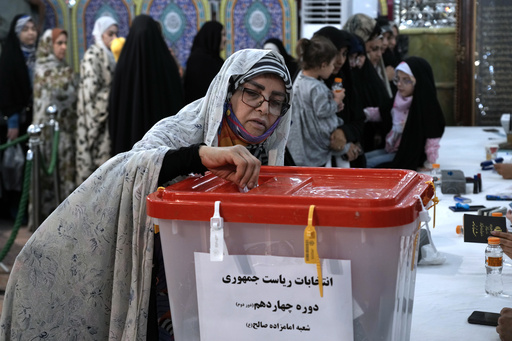In the runoff presidential election in Iran, reformist candidate Masoud Pezeshkian emerged victorious over hard-liner Saeed Jalili. Pezeshkian’s platform included plans to establish connections with the West and to relax enforcement of the mandatory headscarf law in the wake of years of sanctions and protests in the country.
Despite Pezeshkian’s win, challenges lie ahead as Iran’s government is predominantly led by hard-liners. The country is facing tensions in the Middle East, particularly with the Israel-Hamas conflict and concerns from Western nations about Iran’s uranium enrichment levels nearing weapons-grade capabilities.
The Interior Ministry of Iran reported a voter turnout of 49.6%, with Pezeshkian securing 16.3 million votes compared to Jalili’s 13.5 million votes. Pezeshkian, a heart surgeon and veteran lawmaker, celebrated his victory with supporters in Tehran and other cities before addressing the media at the mausoleum of Grand Ayatollah Ruhollah Khomeini.
While expressing gratitude for the support received, Pezeshkian highlighted his commitment to honesty and fulfilling promises made during his campaign. Amidst uncertainties in the region and pending elections in the United States, Pezeshkian’s presidency is anticipated to require careful maneuvering within Iran’s internal politics.
Supreme Leader Ayatollah Ali Khamenei commended the election turnout and urged Pezeshkian to aim for progress and maintain a vision for the nation’s future. Voters displayed cautious optimism following the election, with hopes for a positive impact on various aspects including the economy and ethnic inclusivity.
Pezeshkian’s victory marks a significant moment as he hails from western Iran, a region known for its diversity and tolerance. With a focus on engaging Iran’s diverse ethnic groups, he aims to foster unity and inclusivity throughout the nation.
As Iran navigates through heightened regional tensions and diplomatic relations, Pezeshkian’s presidency could signal a shift towards either confrontation or cooperation with the West. International leaders, such as Crown Prince Mohammed bin Salman of Saudi Arabia and Russian President Vladimir Putin, extended their congratulations to the newly elected president.
The United States criticized the Iranian election as not free or fair, expressing skepticism about potential changes in Iran’s policies. Despite these concerns, the U.S. mentioned a willingness to engage in diplomatic efforts that align with American interests.
Pezeshkian’s campaign highlighted the significance of the Iran nuclear deal and the potential impact of the U.S. presidential election on diplomatic relations. The late President Ebrahim Raisi, a key figure in Iranian politics, was known for his ties to the Supreme Leader and controversial actions during his tenure.


